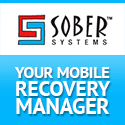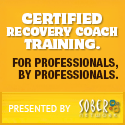- Celebrating the 31st Anniversary of the Americans with Disabilities ActBy Paolo del Vecchio, MSW; SAMHSA Executive Officer As a person with lived experience of mental illness, addictions, and trauma, I consider July 26 - the 31st anniversary of the Americans with Disabilities Act (ADA) - to be our nation’s second Independence Day. For the millions of us with disabilities, it is a day to celebrate our freedom. Freedom from discrimination and the barriers that block our inclusion in community life. Freedom from unjustified segregation and institutionalization. Freedom to earn and to learn. Freedom to pursue recovery and receive services and supports – including mental health and addiction services – that help us participate fully in American life. As an employee with SAMHSA for over 26 years, I am proud of our leadership in protecting the rights of people with mental illness and/or addictions including:
- On National HIV Testing Day SAMHSA encourages everyone risk to get tested for HIVMy Test, My Way – My contribution to Ending the HIV Epidemic in the U.S. Kristin Roha, MS, MPH, SAMHSA Public Health Advisor for HIV On June 27th of each year, National HIV Testing Day (NHTD) reminds us of the importance of HIV testing and gives us the opportunity to share HIV testing resources. Getting tested for HIV is easy, fast, confidential, and safe, and is the first step in knowing your HIV status. For people who test positive for HIV, getting tested is the gateway to accessing lifesaving treatment. For people who test negative for HIV, getting tested can provide empowering information that can help make them decisions about sex, drug use, and health care. For people at risk for HIV, a negative test can also be the gateway to accessing powerful preventive tools, including pre-exposure prophylaxis (PrEP).
- SAMHSA Commemorates the 40th Anniversary of the AIDS Epidemic40 Years of Progress – It’s Time to End the HIV Epidemic By Kristin Roha, MS, MPH, SAMHSA Public Health Advisor for HIV June 5th marks 40 years since the first five cases of what later became known as AIDS were officially reported by the U.S. Centers for Disease Control and Prevention’s (CDC) Morbidity and Mortality Weekly Report (MMWR). June 5th also is observed as HIV Long-Term Survivor’s Day. On this 40th anniversary, SAMHSA commemorates the more than 32 million people, including 700,000 in the United States, who have died from AIDS-related illness globally since the start of the epidemic, and honors the resilience of long-term HIV survivors and the vital role they play within our communities.
- One size does not fit all: Appreciating the diversity of Asian Americans, Native Hawaiians, and Pacific Islanders (AANHPIs) and the Implications for Mental HealthBy Victoria Chau, Social Science Analyst, SAMHSA Office of Behavioral Health Equity, Perry Chan, Public Health Advisor, SAMHSA Office of Behavioral Health Equity
- Groundbreaking Developments in Suicide Prevention and Mental Health Crisis Service ProvisionBy Anita Everett M.D. DFAPA, Director, Center for Mental Health Services 988: The New National Suicide Prevention Lifeline Number The past several years have marked several groundbreaking developments with respect to the National Suicide Prevention Lifeline (1-800-273-TALK). In fiscal year (FY) 2001, SAMHSA awarded a competitive, discretionary grant to establish a network of crisis centers that would respond to crisis calls from their local communities, to ensure those crisis center counselors were trained, and that all crisis centers in the network met standards for accreditation. A single national number was established, which in 2005 became the National Suicide Prevention Lifeline (Lifeline; 800-273-8255 (TALK)). The Lifeline answered more than 2.1 million calls and 234,671 chats in FY 2020.
- Alcohol Misuse Prevention: A Conversation for EveryoneBy Dona Dmitrovic, Director, Center for Substance Abuse Prevention The global coronavirus pandemic has forced us to learn new ways of doing many things. Employees in some job sectors learned to work from home, while others had to find entirely new sources of income. Parents learned to be teachers for their kids, while teachers themselves learned to do their jobs in less-than-ideal remote environments. We figured out how to use technology to celebrate birthday parties, host award shows, and even conduct a presidential inauguration. One thing we can do to benefit ourselves as a nation is talking with friends, family, and neighbors about underage drinking and adult problem drinking prevention.
- There are ways you can intervene to help prevent someone from acting on thoughts of suicideAnita Everett M.D. DFAPA, Director, Center for Mental Health Services National suicide rates are rising, and this is especially true for our nation’s youth suicide rate. Suicide is largely a preventable cause of death, and you are more able to help prevent it than you might think. Suicide is the result of actions being connected to a self-harm idea. Many more people think about suicide than those who die by suicide; however, no one dies by suicide without having thought about it first. There is a thinking-planning phase followed by an action phase. The thinking phase is different for different people: Sometimes it is recurring and intense. Other times it may be fleeting. There is a suicide sequence that can be interrupted, and those interruptions can be lifesaving. There are several strategies for preventing suicide that have been developed for various settings. Generally, there are several components in these trainings that aim to separate a person’s thinking of suicide fro
- Mes Nacional de la Salud de las Minorías: Estrategias para posicionar a los jóvenes para posibles carreras de salud conductualRoxana A. Hernandez, MPH, Shayla C. Anderson, MPH, CHES, Mary Roary, PhD, MBA - Oficina de Equidad en Salud Mental (OBHE)
- National Minority Health Month Spotlight: Strategies to Position Youth for Potential Behavioral Health CareersBy Roxana A. Hernandez, MPH, Shayla C. Anderson, MPH, CHES, Mary Roary, PhD, MBA - Office of Behavioral Health Equity
- Treatment and Prevention Strategies to Reduce Opioid MisuseBy Robert Baillieu M.D., M.P.H., Physician and Senior Clinical and Practice Advisor, Center for Substance Abuse Treatment In managing or preventing substance use disorders, nothing should occur in isolation. People and systems of care are complex. They require frequent observation, assessment and understanding. To this end, systems focused on medical models, statistics and abstract ideas do not take fully into account the reality of a patient’s situation and place too great an emphasis on the individual as being the source of their own suffering. Such paradigms, while accepting that individuals must make their own health decisions, perhaps negate the influence of social systems and existing policy on health outcomes. In working towards the prevention of substance use disorders, it is important to appreciate those social determinants of health, policies and actions that precipitate adverse outcomes. Furthermore, empowering stakeholders to engage with clinicians and policy makers o





